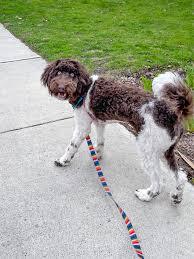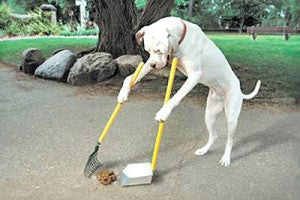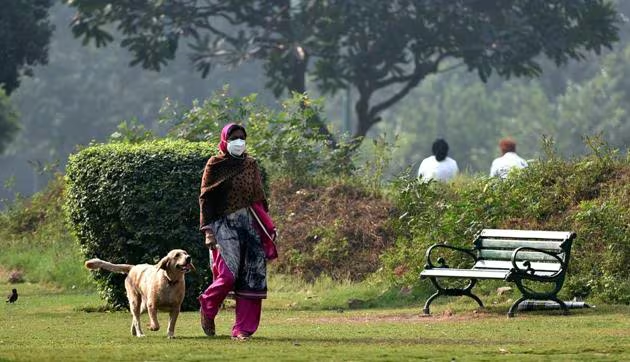South Delhi’s South Corporation is taking a stand against the growing problem of pet waste left on public spaces. In an effort to promote cleanliness, the corporation is proposing a new law to fine dog owners who fail to clean up after their pets in parks, on footpaths, and along roads. According to Kamaljeet Sehrawat, the mayor of South Delhi, sanitation workers will be tasked with issuing fines of at least Rs. 500 to offenders.

In addition to the fines, the corporation is also working on launching a pet registration program to help keep track of dog ownership in the area.
This initiative follows a recommendation from the Animal Welfare Board of India in 2015, urging pet owners to clean up after their pets. The board had also encouraged pet owners to engage with local committees to develop solutions for cleaner public spaces and ethical waste disposal methods.
Pet Poop Laws Around the World
Many countries around the world have strict laws when it comes to cleaning up after pets. In Paris, violators face a hefty fine of 600 Euros (approximately 48,500 INR) for not picking up after their dogs. In London, the penalty is nearly 1,000 Pounds (92,000 INR), while in the United States, dog owners may be charged $113 (about 7,400 INR) for the same offense.

Mixed Reactions to South Delhi’s Proposal
While the South Corporation’s proposal has garnered attention, it has also led to mixed reactions. Gauri Maulekhi from People for Animals (PFA) argues that creating awareness should be prioritized over imposing fines. She advocates for encouraging dog owners to carry poop bags and scoopers, promoting responsible pet ownership rather than penalizing violators.
On the other hand, Chetan Sharma, General Secretary of the Confederation of NCR Resident Welfare Associations (RWAs), supports the South Corporation’s initiative. He believes it will help improve cleanliness and hygiene. However, he also suggests that the corporation should provide designated areas in colony parks where dogs can relieve themselves, to prevent the issue from recurring.
Sharma shared a story about a small sand bed corner set up in his colony park about eight years ago for dogs to use, which was later removed by the Municipal Corporation of Delhi (MCD) for being an “encroachment.”
Health Risks of Dog Feces
The push for a cleaner environment is also rooted in public health concerns. Studies have shown that dog feces can contain harmful bacteria such as E. coli, which can cause serious illness in humans. In fact, a gram of dog waste can harbor more than 20 million E. coli bacteria, along with potential parasites such as tapeworms, hookworms, and roundworms. These can lead to a variety of health issues, from stomach pain and diarrhea to more severe conditions like blindness.
The Need to Address Stray Dog Waste
In India, there is also the ongoing issue of the large stray dog population, adding another layer of complexity to the challenge of keeping public spaces clean. It is hoped that in the future, municipal corporations will not only focus on enforcing laws for pet owners but also develop strategies for managing waste left by stray dogs.
